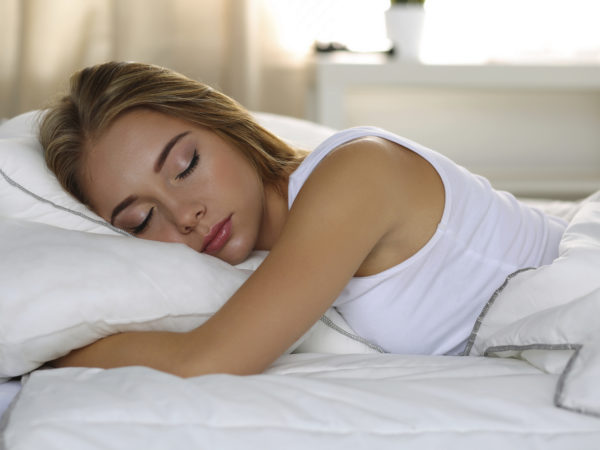Are Non-Prescription Sleeping Pills Unsafe?
My doctor gave me a hard time about taking over-the-counter sleeping pills – I use both Advil PM and Tylenol PM. If these drugs are dangerous, why are they so available?
Andrew Weil, M.D. | March 30, 2017

The non-prescription sleep aids you refer to – and there are many others – are considered safe when used as directed. Unfortunately, many people don’t follow the directions or pay any attention to the FDA-required notice on the label, advising you to see your physician if insomnia continues for more than two weeks. While the drugs don’t present a danger of physical addiction, you can quickly become psychologically hooked on them. And as a 2015 Consumer Reports survey of 4,023 adults found, the drugs frequently are misused: 18 percent of respondents who used them took them daily and 41 percent did so for a year or more. Other sleep remedies the survey asked about included Simply Sleep, Sominex, Unisom SleepMinis and ZzzQuil.
Here’s the problem: OTC sleep aids contain the antihistamine diphenhydramine (Benadryl) that, among other actions, blocks receptors in the brain that control wakefulness. (Many antihistamines cause drowsiness as a side effect.) Other side effects of diphenhydramine include constipation, confusion, dizziness and day-after drowsiness, as well as impaired balance, coordination and driving performance, putting you at risk for falls and accidents. Worse, as I reported on this site two years ago, a 2015 study from the University of Washington found that frequent long-term use of diphenhydramine and other “first-generation” antihistamines (like chlorpheniramine) has been linked to an increased risk of dementia. The study data also suggested that the dementia risk associated with these drugs may persist and may not be reversible even years after you stop taking them.
If you have trouble sleeping, consider the various factors that could be responsible: stress (including anxiety about not being able to sleep), ambient temperature fluctuations, noise, medications, hormonal changes, or disruption of your regular sleep pattern. Depression, chronic pain, a variety of health issues and sleep apnea can also contribute. Consuming alcohol or caffeine and using tobacco products before bedtime can disrupt sleep, as can excessive napping in the afternoon or evening.
The natural sleep aids I recommend are valerian and melatonin:
- Valerian, a sedative herb, has been used traditionally for centuries. Take one to two capsules of an extract standardized to 0.8% valerenic acid a half hour before bedtime.
- Melatoninis a neurotransmitter that regulates the wake/sleep cycle and other daily biorhythms. Try sublingual tablets (to be placed under the tongue and allowed to dissolve); take 2.5 mg at bedtime as an occasional dose, making sure that your bedroom is completely dark. A much lower dose, 0.25 to 0.3 mg, may be more effective for regular use.
Here’s where you can find my other recommendations for overcoming insomnia.
Andrew Weil, M.D.
Sources:
Ginger Skinner, “Can You Get Hooked on Over-the-Counter Sleep Aids.” Consumer Reports, December 29, 2016
Shelly L. Gray et al, “Cumulative Use of Strong Anticholinergics and Incident Dementia: A Prospective Cohort Study.” JAMA Internal Medicine, March 2015, doi:10.1001/jamainternmed.2014.7663









